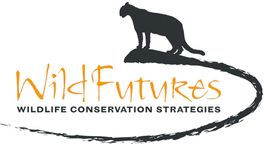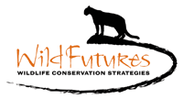Take Action to Protect Mountain Lions
Along with the six steps below, please share The Secret Life of Mountain Lions Video!
- Send to friends, family, supporters, and colleagues
- Post to Facebook and Twitter
- Embed on your website and use it to promote your existing campaigns
- Show in your classroom, event, or for your group
1. Press for building wildlife overpasses
Roads fragment valuable wildlife habitat and, sadly, vehicles kill many animals trying to cross. In the U.S. alone the Federal Highway Administration estimates there are between 1 and 2 million collisions annually with large wildlife, resulting in over $8.4 billion spent on automotive repairs and many wildlife deaths. Car strikes have been shown to be a major threat to more than 20 endangered species.
The thousands of miles of highways and roads in greater Los Angeles threaten the local mountain lions’ existence. There have been 18 documented mountain lion car-strike deaths. Highways also fragment habitat, separating potential mates and resulting in inbreeding. There are at least two recorded examples of fathers mating with their daughters in Los Angeles in lieu of other viable mates.
But there is hope. In Banff National Park, where there are two wildlife overpasses and 22 underpasses, wildlife-car collisions have been reduced by 80 percent. These wildlife overpasses have also connected environments previously separated by roads, increasing interconnectivity and mating possibilities for larger mammals.
Roads fragment valuable wildlife habitat and, sadly, vehicles kill many animals trying to cross. In the U.S. alone the Federal Highway Administration estimates there are between 1 and 2 million collisions annually with large wildlife, resulting in over $8.4 billion spent on automotive repairs and many wildlife deaths. Car strikes have been shown to be a major threat to more than 20 endangered species.
The thousands of miles of highways and roads in greater Los Angeles threaten the local mountain lions’ existence. There have been 18 documented mountain lion car-strike deaths. Highways also fragment habitat, separating potential mates and resulting in inbreeding. There are at least two recorded examples of fathers mating with their daughters in Los Angeles in lieu of other viable mates.
But there is hope. In Banff National Park, where there are two wildlife overpasses and 22 underpasses, wildlife-car collisions have been reduced by 80 percent. These wildlife overpasses have also connected environments previously separated by roads, increasing interconnectivity and mating possibilities for larger mammals.
Featured Campaign: In light of the famous mountain lion P22, which crossed two eight-lane highways (101 and 405) to reach Griffith Park, and 18 other mountain lions that died attempting the same, the National Wildlife Federation, with support from other organizations and CalTrans, launched #SaveLACougars campaign to build an overpass over Hwy 101 in Los Angeles. Overpasses have proved very effective in creating a safe space for mountain lions and other wildlife by increasing their survival and genetic health. And by decreasing overall collisions, overpasses may save more than just mountain lion lives. To support the building of a wildlife overpass in Agoura Hills, allowing safe passage between the Santa Monica and Sierra Madre Mountains, sign this petition.
2. Contact your state’s wildlife agency to protect females and kittens
Protecting female cougars and their kittens is essential to the species’ survival. Write or call your state wildlife agency and urge officials to ban the hunting of cougars (or at minimum to limit the number of females that can be killed). Also, ask your agency to require online hunter education programs to assist hunters in determining a cougar's sex. Only Colorado, Montana, and New Mexico have adopted online hunter education programs to help hunters better identify female cougars.
Protecting female cougars and their kittens is essential to the species’ survival. Write or call your state wildlife agency and urge officials to ban the hunting of cougars (or at minimum to limit the number of females that can be killed). Also, ask your agency to require online hunter education programs to assist hunters in determining a cougar's sex. Only Colorado, Montana, and New Mexico have adopted online hunter education programs to help hunters better identify female cougars.
3. Protect Florida Panthers’ Habitat
Florida Panthers are considered a subspecies of mountain lions, and they are critically endangered. Biologists estimate that there are likely just 180 left of these panthers remaining. At this point, they face several major threats including habitat loss, car strikes, and loss of genetic diversity. These threats are all driven by simply not enough uninterrupted, high quality habitat that a healthy population of cougars can live in and travel across.
Florida Panthers are considered a subspecies of mountain lions, and they are critically endangered. Biologists estimate that there are likely just 180 left of these panthers remaining. At this point, they face several major threats including habitat loss, car strikes, and loss of genetic diversity. These threats are all driven by simply not enough uninterrupted, high quality habitat that a healthy population of cougars can live in and travel across.
Featured Campaign: The Land Water Conservation Fund (LWCF) has protected Florida Panther habitat along with many other valuable ecosystems across the United States for over 50 years. On October 1 congress allowed these funds to run out, leaving all of these vital ecosystems vulnerable, and the future of Florida Panthers in serious peril. This program does not cost taxpayers any money as its paid for with oil and gas company drilling revenues. Sign your name on this letter, leaving your zip code, and the Nature Conservancy will urge your congressman and senators to take action.
4. Eliminate rat poisons
Anticoagulants and other rat poisons are inhumane. They kill thousands of non-target animals each year, including cougars. Tell your friends, family, and neighbors about the dangerous consequences of rat poisons used in and around their homes. Distribute outreach materials widely, and write articles for your homeowner’s association and community newspaper. Help spread the word to your local schools.
- Go to the Urban Carnivores website for excellent information about the effects of rodenticides on cougars and other wildlife.
- Learn why rat poisons are harmful and find tips and alternatives for these killer poisons.
Featured Campaign: Wildlife are being poisoned at alarming rates in California from rodent poisons. These poisons are often found in bait boxes placed around residential and commercial properties. Several mountain lions have already died in California as a result. National Park Service researchers in 2015 documented the presence of rodenticide compounds in 12 of 13 mountain lions they tested, including a 3-month-old kitten. If passed, Bill AB 2422 would make California the first state to ban any rat poisons that are deemed a "rampant threat" to pets and wildlife. To follow this campaign, or learn more about rat poisons, check out the RATS (Raptors Are The Solution) website.
5. Show your support for current national legislation
You can help promote and enhance our nation’s conservation efforts and ensure the long-term health of fish and wildlife throughout the country, right now, through the allocation of $1.3 billion annually in existing revenue from oil and gas royalties to the Wildlife Conservation Restoration Program.
You can help promote and enhance our nation’s conservation efforts and ensure the long-term health of fish and wildlife throughout the country, right now, through the allocation of $1.3 billion annually in existing revenue from oil and gas royalties to the Wildlife Conservation Restoration Program.
Featured Campaign: Recovering America’s Wildlife Act (H.R. 4647)
In early December 2017 two U.S. representatives introduced a bipartisan House bill to dedicate $1.3 billion annually (earned from oil and gas royalties) to strengthen and support a broad range of wildlife conservation plans and initiatives for public access to open space. The U.S. Fish and Wildlife Service has led successful conservation movements when proper resources were available. This bill aims to reduce the number of extinction events in upcoming years and to preserve more open space for generations to come. Many groups of animals are at risk. See the chart for more information. To promote this legislation, contact your congressional representative and express your support. You can call or use the Act Now link provided by the National Wildlife Federation to send an automatically generated email.
In early December 2017 two U.S. representatives introduced a bipartisan House bill to dedicate $1.3 billion annually (earned from oil and gas royalties) to strengthen and support a broad range of wildlife conservation plans and initiatives for public access to open space. The U.S. Fish and Wildlife Service has led successful conservation movements when proper resources were available. This bill aims to reduce the number of extinction events in upcoming years and to preserve more open space for generations to come. Many groups of animals are at risk. See the chart for more information. To promote this legislation, contact your congressional representative and express your support. You can call or use the Act Now link provided by the National Wildlife Federation to send an automatically generated email.
|



